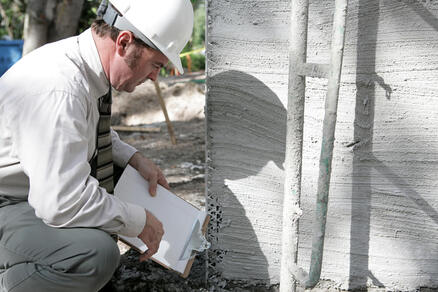
You’re getting ready to make the biggest purchase of your life, to dive in and become a homeowner.
You’ll discover a lot about your new home once you move in. But there are some aspects of homeownership that’s better to know before your buy.
A big concern for prospective new homeowners is energy costs and efficiency.
Is the home you’re buying energy efficient? If not, you need to know so you can calculate costs to get it energy efficient. But what questions should you ask?
Here are five good questions to ask your home inspector about the possible energy costs for your new home.
Energy Costs #1: How Old Is the HVAC System and Is It An Energy Efficient System?
This is the largest energy user in your home and the most expensive equipment. Since most HVAC systems last between 15-25 years, you’ll want to know how old the system is in the house.
You’ll also want to know the energy, maintenance, and replacement costs of the system. Your inspector can help you with this, and the owner can provide the costs that she has incurred since owning the home.
Energy Costs #2: How Old Is the Water Heater?
The average lifespan of a water heater is about 10 years. Depending on the unit type and installation costs, the replacement costs of a water heater can range from $400-$3600.
Your home inspector can advise you on the condition and age of the water heater. If it is an old unit, it’s best to replace it rather than risk it failing and causing water damage.
Energy Costs #3: What Is the Condition of The Electrical Panel and Wiring?
You want to make sure that the electrical panel can accommodate any new appliances you might purchase. For example, an electric vehicle charger or air conditioning.
A panel upgrade or rewiring can be costly! While an older panel and wiring aren’t necessarily inefficient, they can make some energy efficient projects more expensive. Find out ahead of time from your inspector what you are dealing with.
Energy Costs #4: Are There Any “Extras” in the Home That Will Increase Utility Bills?
Have your home inspector check for any motors on the property or in the home, including septic systems and pumps for wells. Saunas, hot tubs, and pools also increase electric bills.
Find out upfront if these extras fit into your budget, and what they cost per month to operate.
Energy Costs #5: What’s the Insulation Like in the Attic, Walls, and Floors?
Proper insulation is crucial! It’s a driver for lowering utility bills. To make insulation more effective, air seal before adding insulation. Sealing gaps, cracks, or holes in floors, walls, and ceiling, and framing between heated and unheated spaces will save you money and keep you warmer.
Ask your home inspector about the quality of the insulation in the home you want to buy. If it needs additional insulation and air sealing, make this your priority! The quicker you do it, the more energy you’ll save over time.
To learn more about air sealing and insulation, go to www.energy.gov.
Buying a home is a big step in life! Take advantage of the expertise that a home inspector offers. Ask LOTS of questions including those about energy costs.
You’ll feel more confident as a buyer and as a new homeowner!
When you’re ready to close on your new home, turn to the pros at Lilly Title & Settlement. We’ll help you get to the closing table and into your new home with ease. Learn more about us here.
 RSS Feed
RSS Feed